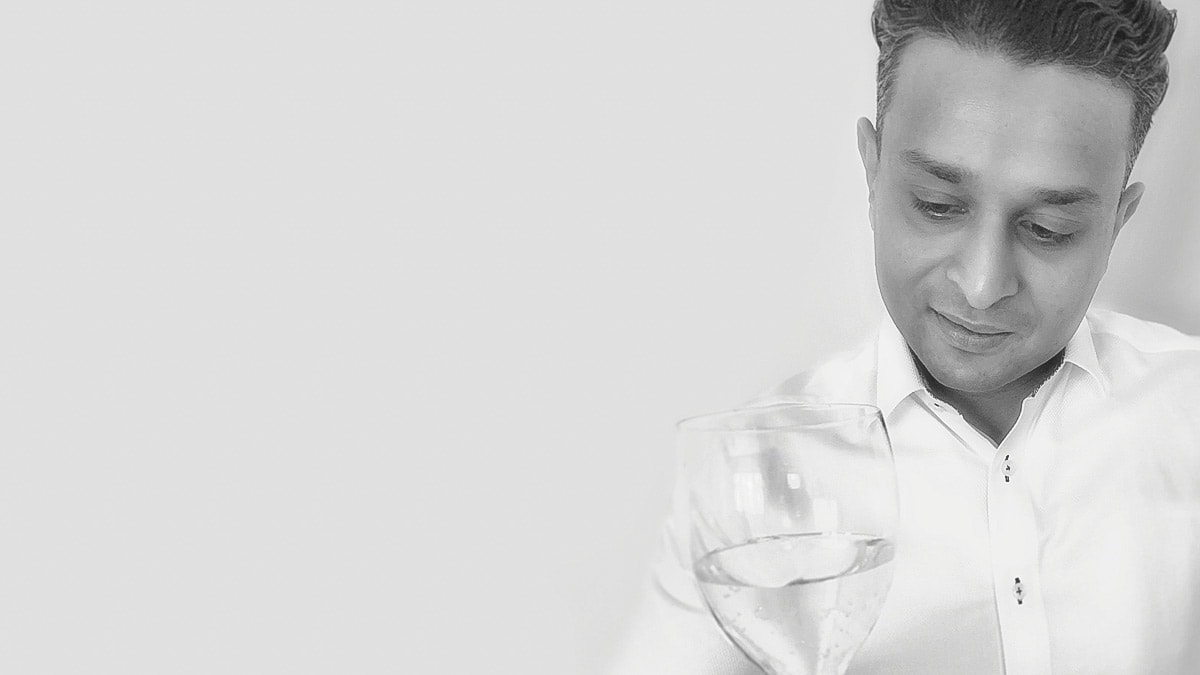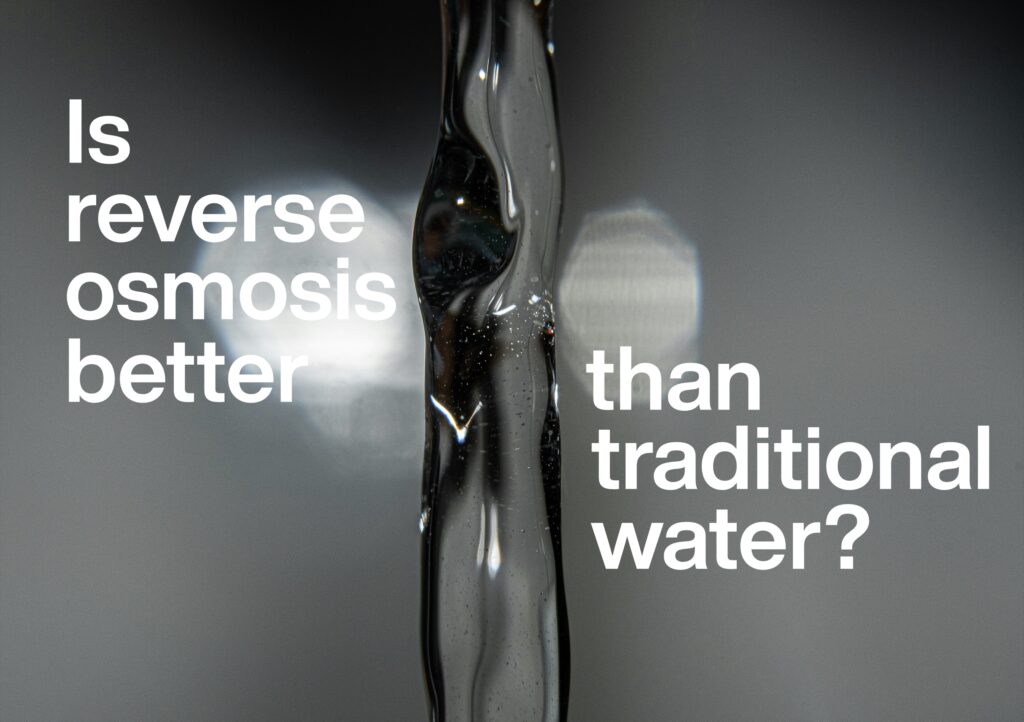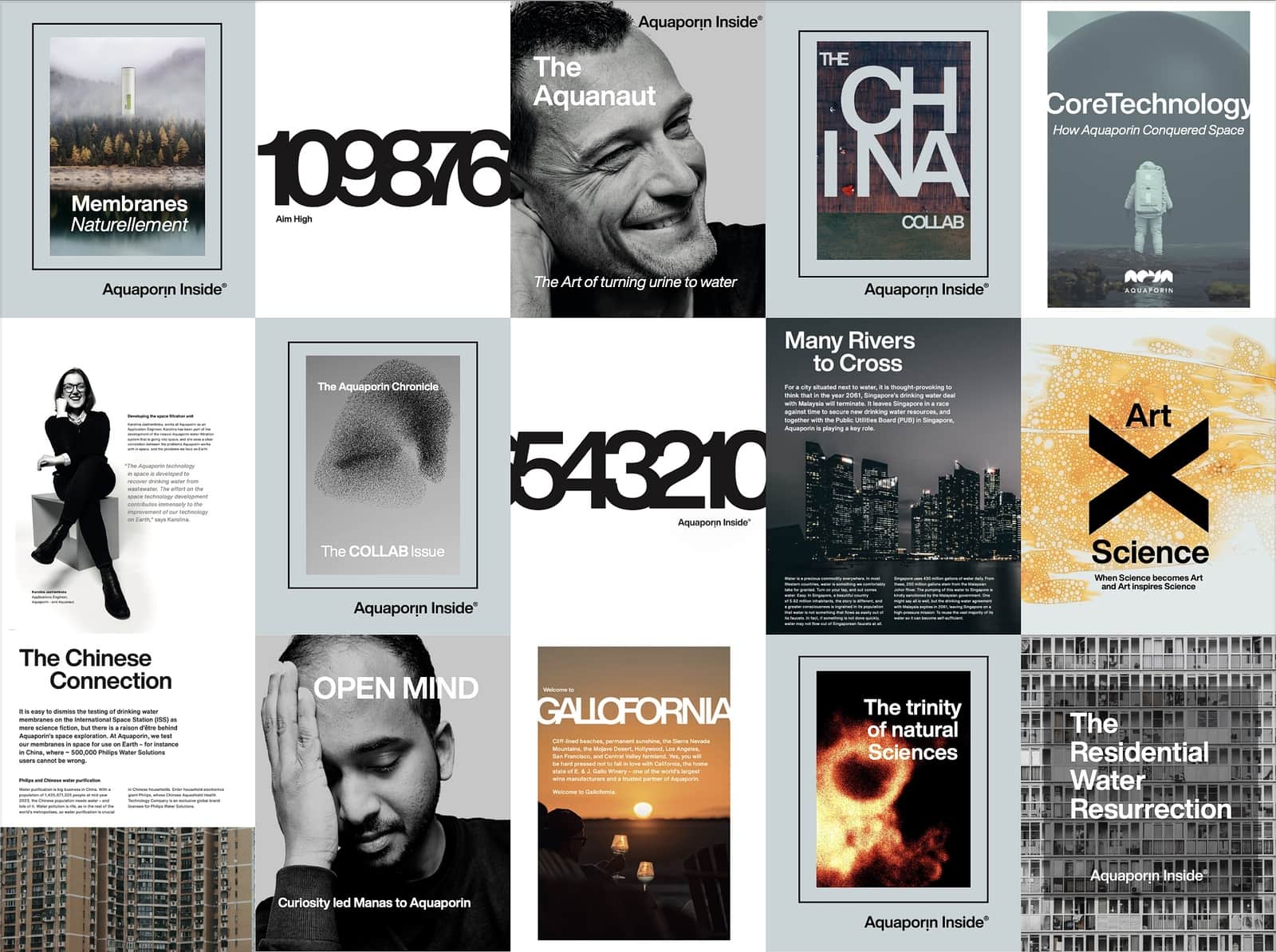Fine Liquids elevates drinking water

Given his rare profession, Milin Patel from Fine Liquids belongs amongst Aquaporin’s most niche partners. As a passionate water sommelier, he perceives water in a unique way and continually value Mother Earth for one of the greatest gifts she has provided us with; water.
Becoming a water sommelier
London-based Milin is a business partner of Pat Eckert, Founder and CEO of Fine Liquids, an international distributor of natural fine waters and a community for water enthusiasts. Milin has been studying and working with water technology from a young age. To awake people’s fascination and interest in water, he has always been interested in bridging the gap between bottled, naturally sourced water and water technology. Therefore, he decided to become a water sommelier and experience water in a completely new and different way.
“I find it very hard to tell the story of a beverage made in a factory. There’s no backstory, no romance, no imagination. But when you’re talking about water from a natural source Mother Nature has carbonated herself, it’s a different story,” he says.
As a certified water sommelier, Milin holds one of the rarest titles of our time. According to himself, a water sommelier is someone who can spark people’s imagination and elevate a drinking water lifestyle as well as teach individuals about a water’s taste, source, and its geology. Having vowed his life to advocating for safe, clean water, he puts an honor into teaching people how to respect and appreciate water.
To live up to that purpose, Milin has been keen on adding Aquaporin’s water purifiers to Fine Liquids’ portfolio.
“It’s been a very nice journey with Aquaporin, and it’s clear that it’s more than just filtering water. We cannot rely on commoditized, plastic-bottled water. It is literally killing our planet. If we want to drink something else than regular tap water for hydration, we can filter our tap water to improve it,” he says.
Being certain of his aesthetic sense, it’s been difficult for Milin to find just the right purifier to offer to Fine Liquids’ exclusive segment.
“I must say Aquaporin has found the perfect relationship between amazing drinking water technology and design,” he says.
Milin's business partner, Germany-based Pat Eckert, adds some more aspects:
"To me, it is important to make our customers an offer for their everyday life beyond our portfolio in terms of premium water. With an Aquaporin water purifier, we offer a state-of-the-art solution that could hardly be any closer to the processes of natural water filtration. That's why I am very happy to have found Aquaporin in this unbelievably large and unmanageable market segment."
The inevitable reference: wine
For the sake of sustainability, it is important to Milin that gourmet waters are not consumed for hydration purposes, but only on special occasions for pleasure and taste – like a fine wine or a Friday night treat to put it in his own words. Personally, he has a water preference for when he’s eating red meat, another one for fish, and a third one for chicken:
“Just like I do for food. By pairing contrasts and textures in food with different waters and describing their taste and what pleasure they bring, a water sommelier can elevate a fine dining experience as a wine pairing would do,” Milin says.
It’s a commonly known fact that describing the taste of water is difficult, close to impossible. Milin believes that is only because we don’t have a vocabulary for it.
“You have one for whisky, you have one for wine, but there’s no defined vocabulary for water.
Water has been in this universe for billions of years, but we’ve never been taught how to describe the taste of it. If people drink water and truly can’t taste anything, they’re severely dehydrated,” Milin says with a laugh.
Describing the indescribable
According to Milin, each natural source of water is unique in character and taste. A water’s flavor is influenced by components such as calcium, magnesium, potassium, alkalinity, bicarbonate, and iron which are all affecting the taste profile and complexity of the water. The flavors origin from the source the water is taken from and can for example cause water to taste citrussy, salty, earthy or milky. According to Milin, the only overall thing that can be said about water’s taste is that it tastes wet. With that exception, water’s flavor palette is too complex to describe in general terms.
“I have no superpowers when it comes to water. It’s a genuine thing. The flavors are subtle, but they’re there. Be mindful when you drink water, enjoy it at room temperature, and you’ll start tasting the nuances. There’s no right or wrong. Everyone has a different taste sensation,” Milin says enthusiastically.
There is one thing that makes it easier to describe the taste of water and that is doing a water tasting. Pulling out two wine glasses filled with water, Milin is ready to do a live water tasting. He starts with the yellow-labelled glass filled with London tap water.
“Immediately, I’ve got a chalkiness to the water. It’s kind of gritty, and when I run my tongue on top of my mouth, I feel that grittiness from the calcium. It’s hard, it feels very heavy on the mouth. A very faint taste of chlorine, but that’s just due to the water distribution in the UK – it’s dosed in chlorine. It’s definitely got sort of a metallic taste to it,” he says.
After having finished the first glass, he moves on to the other one marked with a green label.
“Filtered by Aquaporin, the tap water is soft, smooth, not as heavy, a lot lighter on the pallet. That hint of chlorine and the metallic taste are not there. It tastes more neutral. More like a silky feel. There’s definitely a difference between the two,” Milin says and adds:
“But remember, there’s no best water. The best water is safe water.”




